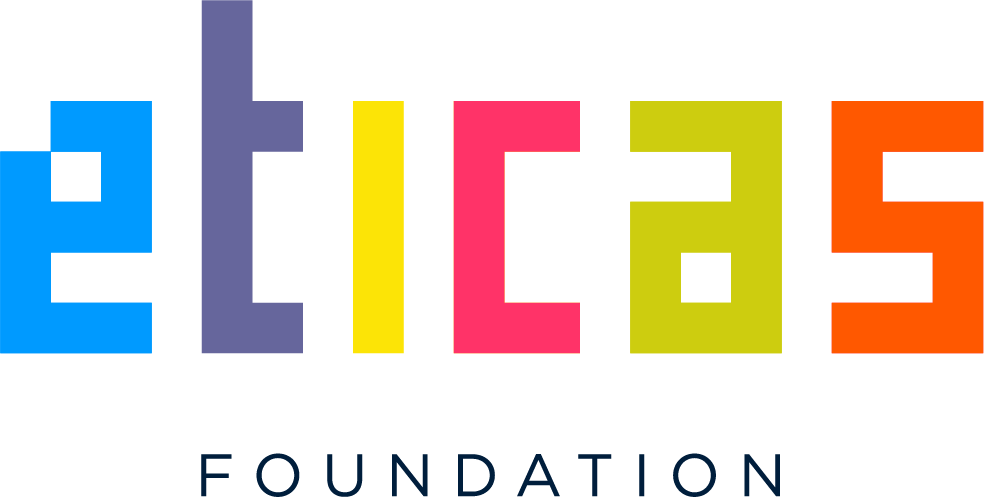Our projects
VIOGÉN SYSTEM
VioGén is an algorithm that determines the level of risk faced by a victim of gender-based violence and establishes her protection measures in Spain. It is the largest risk assessment system in the world, with more than 3 million registered cases. Since 2018 Eticas has reached out to the Spanish Ministry several times and offered a confidential pro-bono internal audit of the VioGén system. While this suggestion was well received, no action was taken. In 2021, Eticas decided to make an external audit of this system.
BAD DATA
If data can be bad, can decisions based on data be good? This project seeks to de-mystify some of the common assumptions about how data works, showing that bad, BadData can have real-life consequences” sometimes trivial, others life-changing and inescapable.
BIG DATA AT THE BORDER
Enhanced security measures have turned airports into dense data ecosystems, and human mobility into a continuously monitored process. Digitalising travel and border crossing is having impacts that go way beyond practicalities. Could data be changing the nature of borders, our relation to our biometric bodies and our definition of identity and belonging?
SAFE ENVIRONMENTS
How is data used in schools? During 2017 and 2018 we explored how monitoring learning is impacting on teaching and privacy by looking at how surveillance technologies have been proliferating in education: from CCTV in bathrooms to Edtech.
UNIONS FACING THE TECHNOLOGICAL CHALLENGE
Digitization, automation and artificial intelligence are shaking up the world of work, and pointing to a future where labour may be different from what it is today. In this changing environment, since 2019 we have teamed up with trade union organisations to think collectively of these challenges and develop a technological agenda that incorporates privacy, digital labour rights and ethics standards into labour relations. In order to turn our research into practice, we have created an ever-evolving toolbox of resources that trade union representatives can use to raise their concerns about the use and impact of data intensive technologies at work.
¿QUIÉN DEFIENDE TUS DATOS?
For the last few years (2018, 2020) we have teamed up with the Electronic Frontier Foundation in the US and other counterparts in Latin America to encourage Internet companies to be on the side of their users in the defense of their privacy and in the promotion of their digital rights. We have designed a series of evaluation criteria that serve as a guide to evaluate and compare how companies treat your data and protect your rights, and rank them accordingly. These evaluation criteria are designed to go beyond what is strictly stipulated by law, as WE seek to promote best practices in defense of the privacy rights of users and customers.
RESPONSIBLE OPEN DATA
Data is everywhere. In the digital age, our data footprints include information on what we do, where we go, who we know, what we have, what we like or how we feel. We generate this information while we work, walk, interact, speak, protest or search online. The activities we engage in generate data in their turn, and all this information is useful to shape services, products and cities, for instance, and to promote transparency and accountability. We teamed up with the Open Data Institute in the UK to develop practical guidelines to help organizations anonymise the data they use, publish and share.
THE BARCELONA’S ICT ECOSYSTEM FROM A GENDER PERSPECTIVE
Women continue to be discriminated against in all areas and fields, but specifically in ICT. This study is a diagnosis of gender policies in ICT, where we analyze the ecosystem of information and communication technologies in Barcelona from a gender perspective to find out the causal relationships that give rise to and perpetuate the digital gender gap in the city. We evaluate and review the situation and current data from different sectors, from labour to education, but also cultural associations and public administration, to help policy-makers understand where are the gaps and opportunities to address gender discrimination.
Latest Blog Posts

Algorithms
How are algorithms and IA being applied in healthcare?
April 7, 2022
In recent years, AI has been widely applied in the medical sector. Do you want to know where and how it is applied? The…
Read More
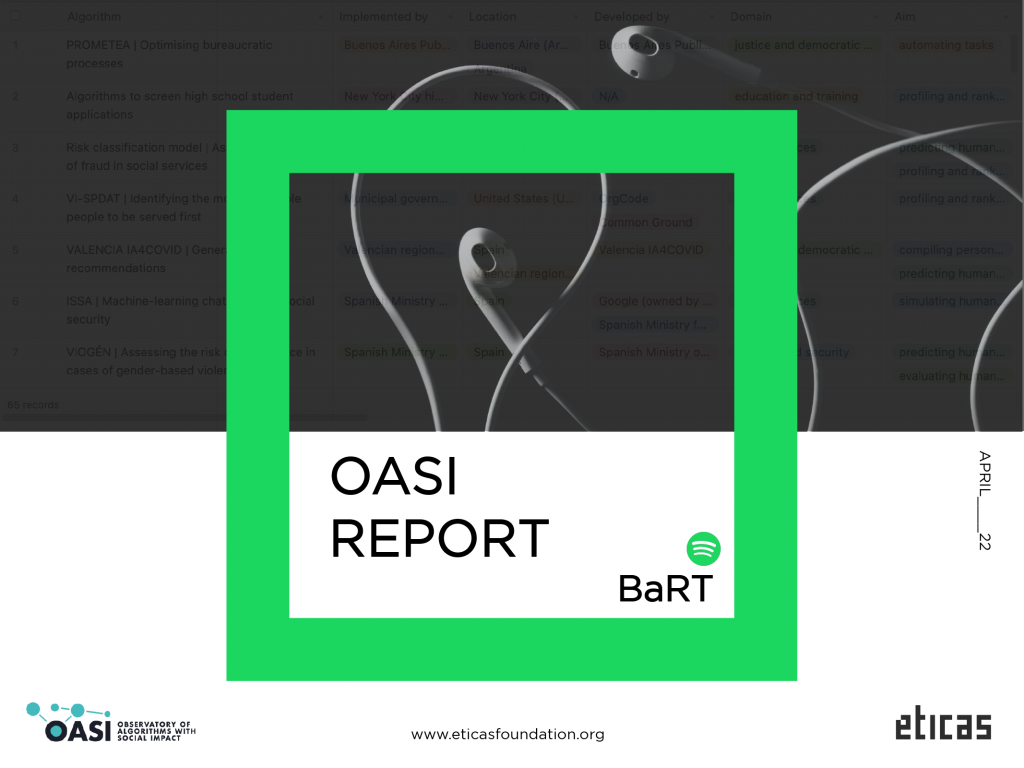
Algorithms, News
BaRT, Spotify’s personalised recommendation algorithm
April 4, 2022
You may have never heard of BaRT or you may not know who or what that is (we’re not talking about Bart Simpson here). But…
Read More

Algorithms, Gender, Labour
Gender inequalities in the platformization of domestic and care work
March 28, 2022
ETICAS Foundation analyzes the work of platforms of domestic and care work and conducts interviews with women who work in these platforms with the objective…
Read More

Algorithms, Gender
Gender discrimination in the algorithmic field: a look at the algorithms in the OASI Register
March 14, 2022
Throughout history, and still today, there have been large groups of society that have been or continue to be discriminated against for reasons such as…
Read More
Latest Blog Posts
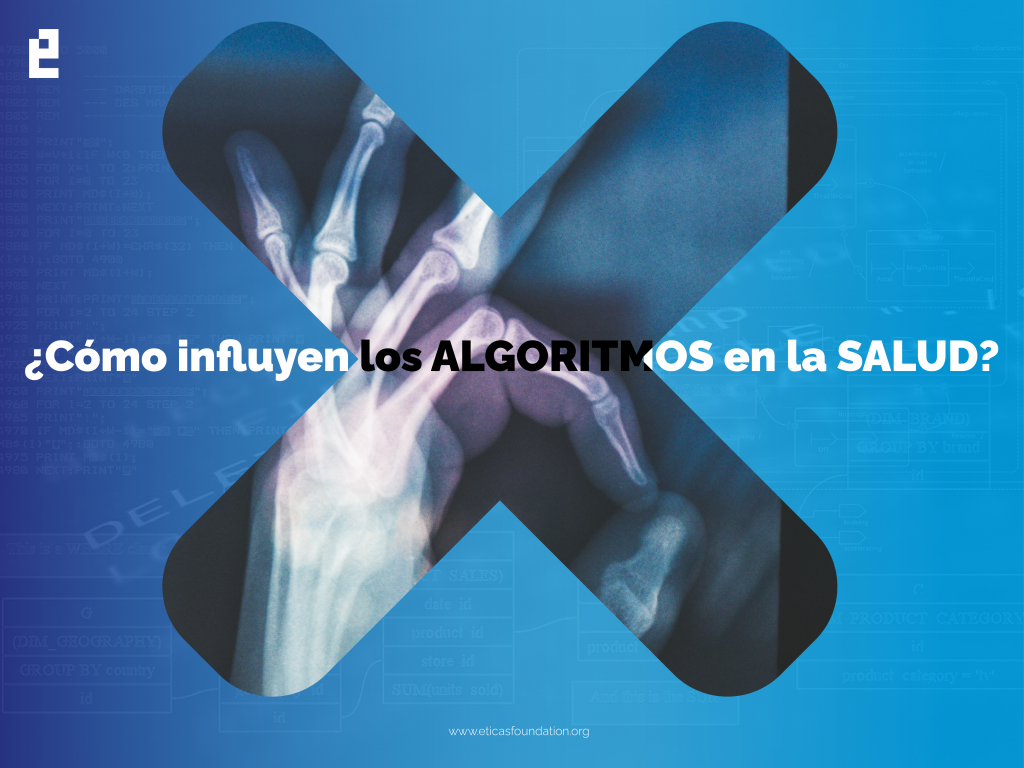
¿Cuál es el uso de la IA y los algoritmos en la salud?
¿Cuál es el uso de la IA y los algoritmos en la salud?
En los últimos años, la IA se ha aplicado ampliamente en el sector médico. ¿Quieres saber dónde y cómo se aplica? Estas tecnologías ofrecen múltiples opciones que ayudan al desarrollo de soluciones médicas y consolidación en la automatización de ciertos procesos. Por ejemplo, se emplean en la búsqueda de tratamientos personalizados para cada […]

How are algorithms and IA being applied in healthcare?
How are algorithms and IA being applied in healthcare?
In recent years, AI has been widely applied in the medical sector. Do you want to know where and how it is applied? The application of artificial intelligence in healthcare field provides extensive applications that help to support the system and the development of medical solutions. It is used to search personalized treatments for […]

BaRT, Spotify’s personalised recommendation algorithm
BaRT, Spotify’s personalised recommendation algorithm
You may have never heard of BaRT or you may not know who or what that is (we’re not talking about Bart Simpson here). But if you use Spotify to listen to music or podcasts, then BaRT most probably knows a lot about you. Bandits for Recommendations as Treatments (or BaRT, for short) is the […]

Gender inequalities in the platformization of domestic and care work
Gender inequalities in the platformization of domestic and care work
ETICAS Foundation analyzes the work of platforms of domestic and care work and conducts interviews with women who work in these platforms with the objective of giving more visibility to the situations of these women from their own testimonies, and denounce gender segregation in the labor market. With our research we want to shed light on […]
Subscribe to get updates
Sign up for our mailing list and follow us on Twitter.
We’ll only use your data (your name and email) to send you updates on our latest projects, publications, and events. Data will only be shared with MailChimp, our email communications provider and their privacy policy is here. As long as we have your data, we’ll keep it safe and secure. Feel free to unsubscribe any time. If you unsubscribe, your email will be deleted. Once unsubscribed, the Eticas Foundation won’t use your email for any other purposes. If we decide to terminate updates, we will also delete your data.

